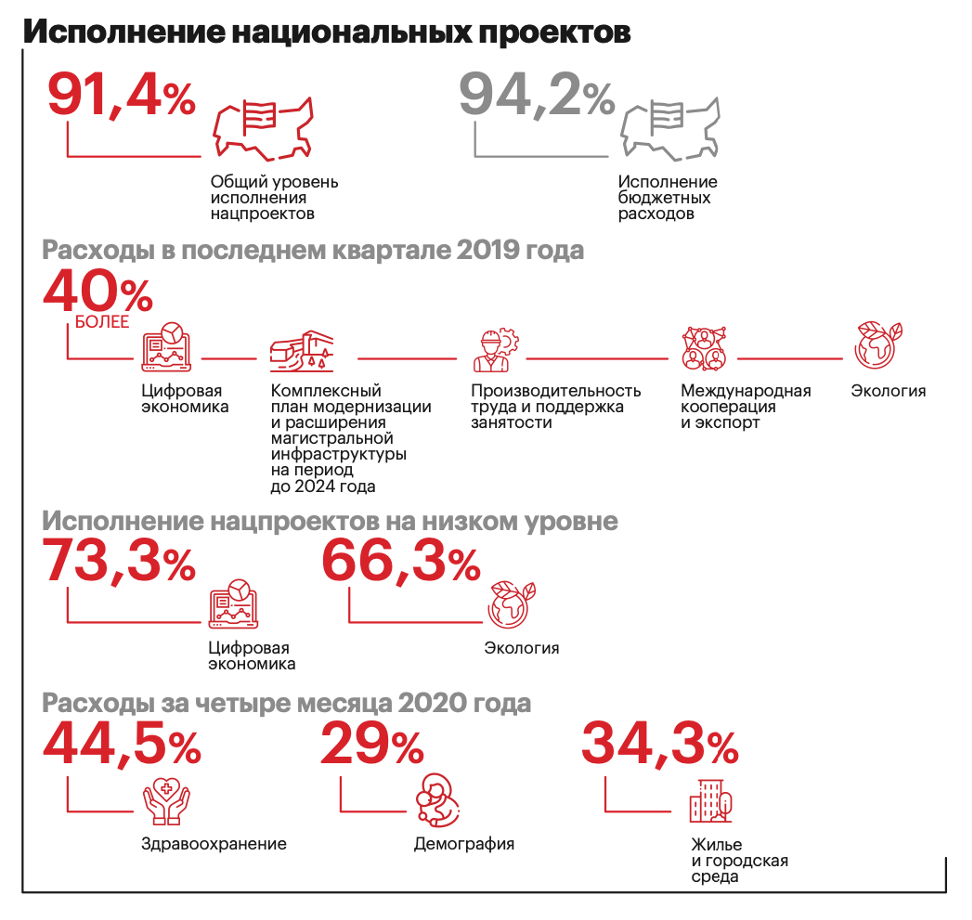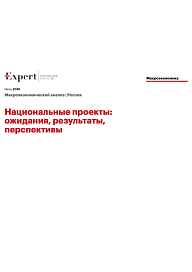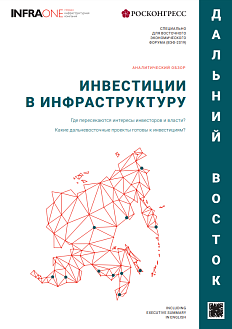Material part of funds allocated by the national projects, are directed to cover the costs that were made before but were financed from the federal budget. Scope of the national projects are currently being revised regarding an increased role of healthcare and social policy due to the COVID-19 impact. Most countries worldwide have announced implementation of extensive financial measures aimed at social policy, healthcare and business support. Russia has also announced implementation of similar measures, but on a smaller scale. National development goals are expected to be extended up to 2030 in accordance with the Decree of the President of the Russian Federation dated 21 July 2020 that emphasizes increasing the length of life, fight against poverty, education, science, environmental protection and infrastructure as well as extension of deadline to implement the objectives.
The Roscongress Foundation presents the salient points of the publication accompanied by fragments of broadcasts of relevant panel discussions from the business programme of international events held by the Roscongress Foundation.
Material part of funds allocated by the national projects, are directed to cover the costs that were made before but were financed from the federal budget.
2019 witnessed the most active realization of costs on national projects that were financed from the federal budget in 2018 and earlier (bureaucratic approval process was simple). For example, 19 % of all funds allocated for national projects in 2019, and more than 26% in 2020, were distributed to provide financial aid to families at childbirth in form of maternity fund.
In the Q4 2019, costs on underperforming national projects were realized ahead of schedule: more than 40% of budgeted costs on national projects were realized in the last quarter.

During the crisis caused by coronavirus pandemic, national projects will serve the goals of the current budgetary policy. Moreover, scope of the national projects are currently being revised regarding increased role of healthcare and social policy.
In terms of economic crisis caused by the COVID-19 pandemic, the authors expect increase of costs for the national project Healthcare (by 10 %) in 2020 and 2021 due to significant cost saving on national projects Digital Economy, International Cooperation and Export, Science in 2020 and 2021 by 25% and 20 % respectively; and slight saving (by 10 %) on national project Demography in 2020 and 2021 (due to decrease in maternity fund applications) and the other projects by 10 % in 2020. The experts also expect total spending on national projects in 2020 to decrease approximately by 150 bln rubles (compared to budget), and by 100 bln rubles in 2021.
For more information about construction as a sector with a sizeable share in many economies, rising level of digitalization, and shifts in consumer sentiment in real estate, please see the StayHomeEconomy, COVID-19 and:
· The National Program «Digital Economy»
· Comprehensive Plan for Upgrading and Expanding Core Infrastructure
· The National Project «Labor Productivity and Employment Support»
· The National Project «International Cooperation and Exports»
· The National Project «Ecology»
· The National Project «Demography»
· The National Project «Housing and Urban Environment»






